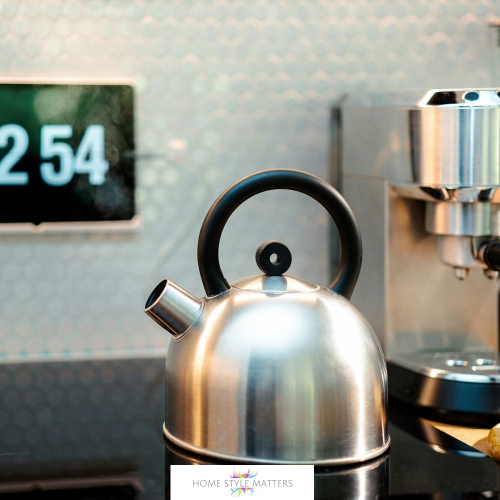Table of Contents
In the ancient art of Feng Shui, the kitchen holds a special significance as the place where nourishment and abundance are created. If you’ve been yearning for a more harmonious and balanced kitchen, it’s time to infuse some Feng Shui principles into this vital space. We will guide you through simple yet effective tips to create a kitchen that not only pleases the palate but also enhances the positive energy flow in your home resulting in good vibes.
Clear Clutter
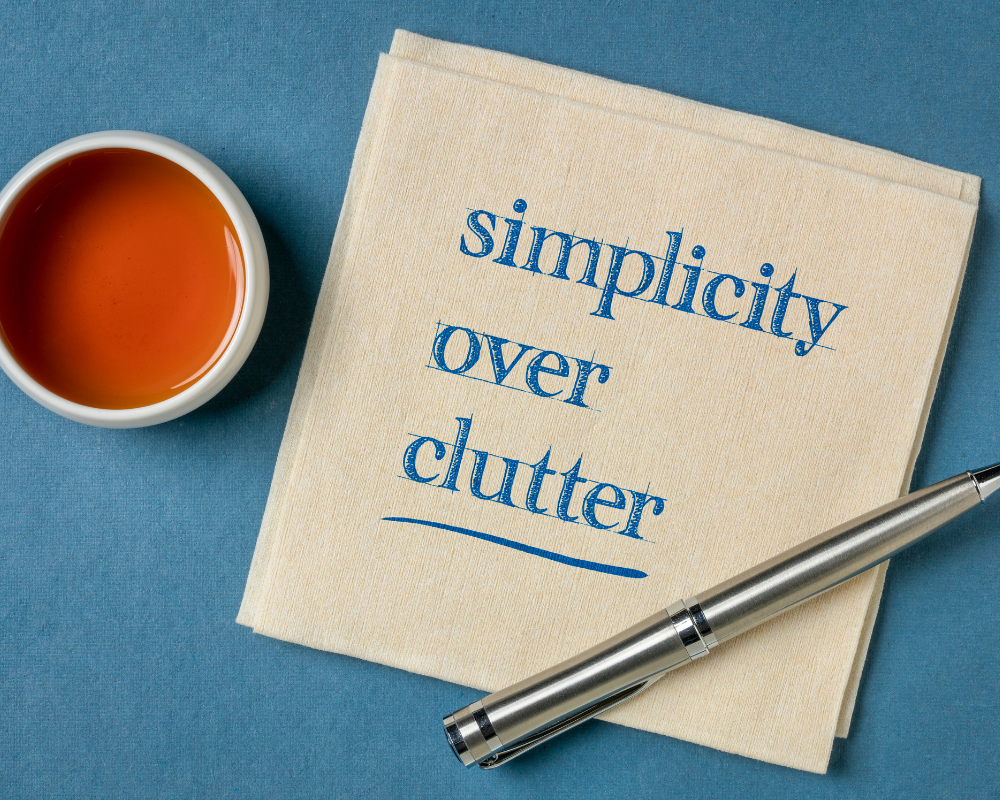
Clearing the clutter from your space is not just about creating a tidier environment and empty space, it’s also about fostering positive energy and promoting well-being. In the kitchen, applying Feng Shui principles can help to enhance the interior design and flow of energy and create a harmonious space for cooking and dining. When you clear the clutter in your kitchen, you allow fresh energy to circulate freely, influencing all aspects of your life and family. Feng Shui practices suggest that a clutter-free kitchen in particular a small kitchen invites abundance and prosperity into your home and encourages healthier eating habits.
A clutter-free kitchen promotes clarity and allows good energy (Chi) to flow freely. Removing excess items from countertops or in a modern kitchen design a kitchen island, organizing storage spaces can contribute to a sense of calm and balance in this important area of your home. A decluttered open space allows for better air circulation and natural light, enhancing the overall feel of the area while making it more inviting for both food preparation and social gatherings with family members and friends alike.
Optimal Kitchen Layout
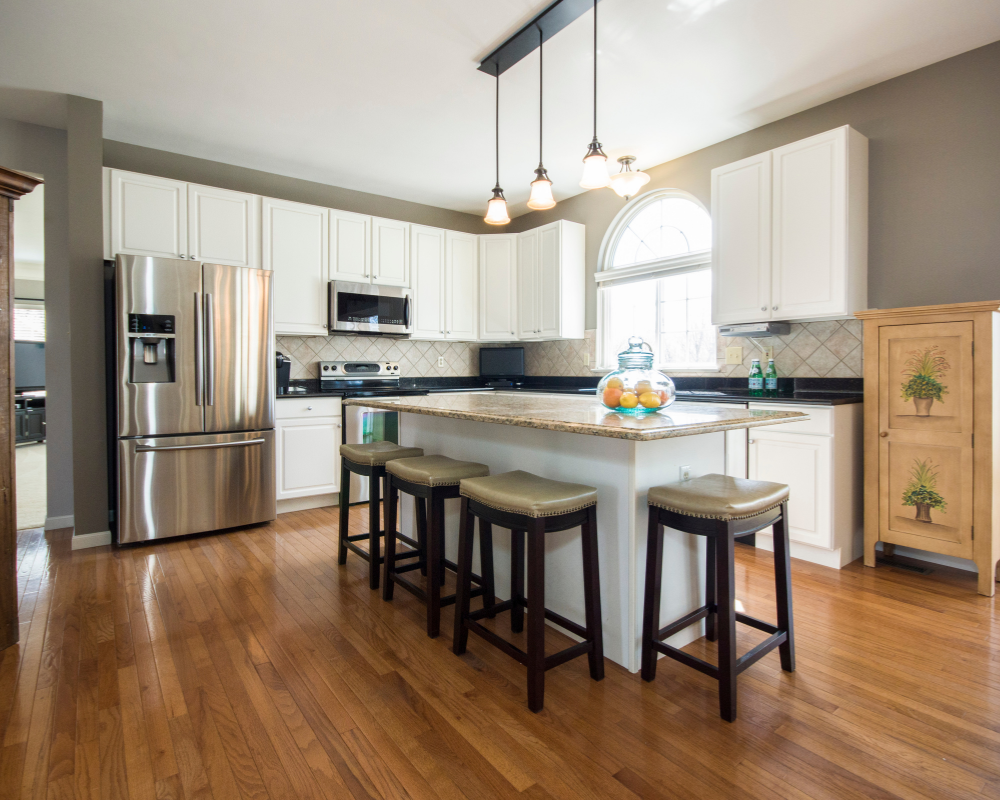
When designing the optimal kitchen layout, incorporating Feng Shui principles can significantly enhance the energy flow and overall functionality of the space. By strategically placing key elements such as the stove burners, sink, and refrigerator in a harmonious triangle formation, you can create a balanced and efficient workspace that promotes positive energy and well-being. Keep these elements close but avoid placing them in a direct line to prevent conflicting energies. Integrating natural light sources and ventilation into the kitchen design not only improves air quality but also uplifts the overall ambiance.
Consider embracing open shelving or glass-front cabinets to showcase beautiful dishware and bring a sense of openness to the kitchen. This approach encourages organized storage and adds a style appeal to the space especially in modern kitchens. Incorporating vibrant greenery or fresh herbs within the kitchen area can infuse it with a touch of nature, promoting health and vitality within your cooking environment. Embracing these innovative concepts not only transforms your kitchen into a practical workspace but also fosters a nurturing atmosphere that enhances your culinary experiences.
Balance the Elements
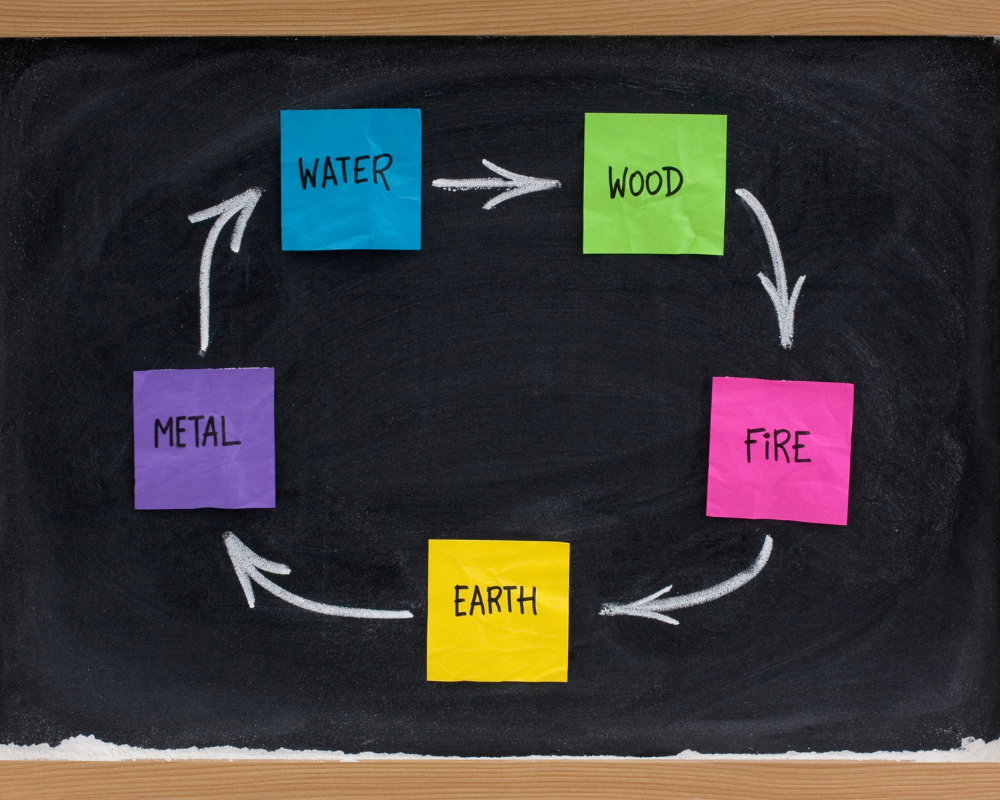
Balancing the elements in a space, especially the kitchen, is an essential principle of Feng Shui. The five elements (wood, fire, earth, metal, and water) must be harmoniously represented to create a balanced and energized environment.
Wood: In the kitchen, incorporating a wood element through furniture or decoration can bring warmth and vitality while symbolizing growth and creativity.
Fire: Adding splashes of fiery red tones or incorporating candlelight can represent the fire element bringing passion and energy into the space, also fire is naturally represented by the stove,
Earth: To enhance balance in the kitchen area with an earth element according to Feng Shui principles, consider introducing earth tones through pottery or stoneware to ground the space and represent stability.
Metal: Introducing a metal element through accents such as stainless steel cookware or metallic ornaments can invoke precision and clarity while negating negative energies.
Water: Integrating water features like a small fountain to add water elements is a good idea or placing blue decorative pieces can invite calmness and tranquility into the heart of your home.
Natural Light and Ventilation
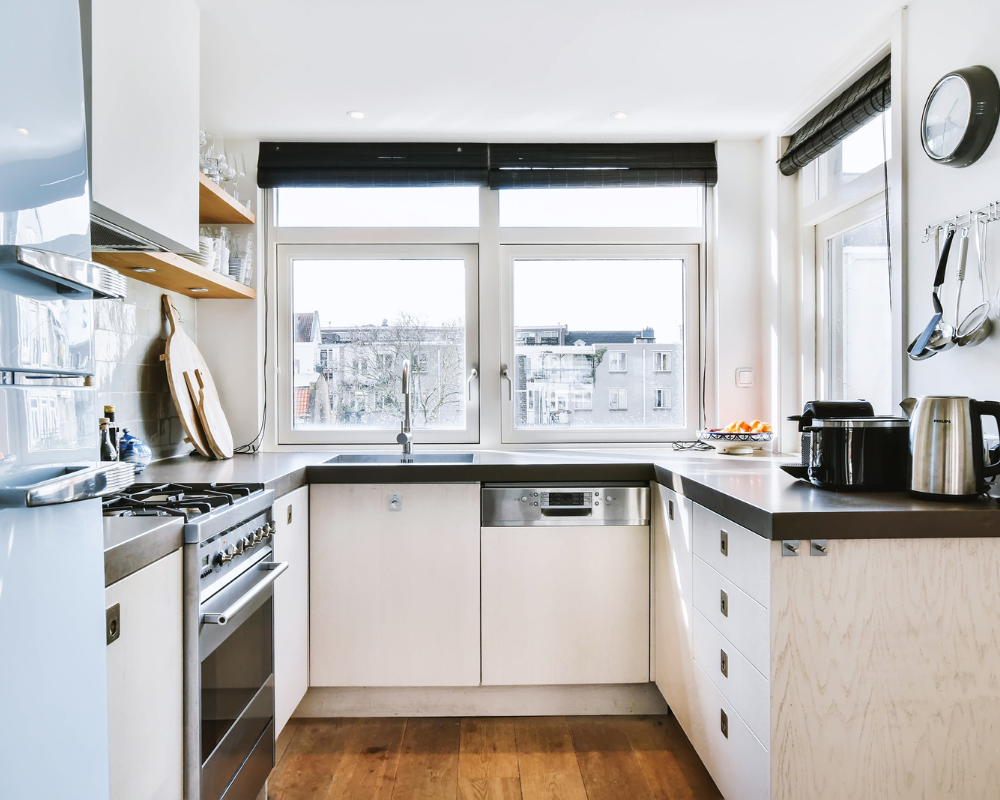
Natural light and ventilation are essential elements in creating a harmonious living environment, especially when it comes to the feng shui of the kitchen. Allowing natural light to flood into the kitchen space not only brightens up the room but also promotes a sense of openness and energy flow so open curtains or blinds during the day to allow natural light in. In feng shui principles, good ventilation ensures that positive chi or energy can circulate freely, preventing stagnation and promoting a healthy atmosphere for food preparation.
When designing a feng shui kitchen, it’s important to maximize natural light by positioning windows strategically to allow an abundance of sunlight to enter the space. Additionally, incorporating proper ventilation through exhaust systems or open windows can help remove any stagnant air or negative energy from the area.
Choose Soothing Colors
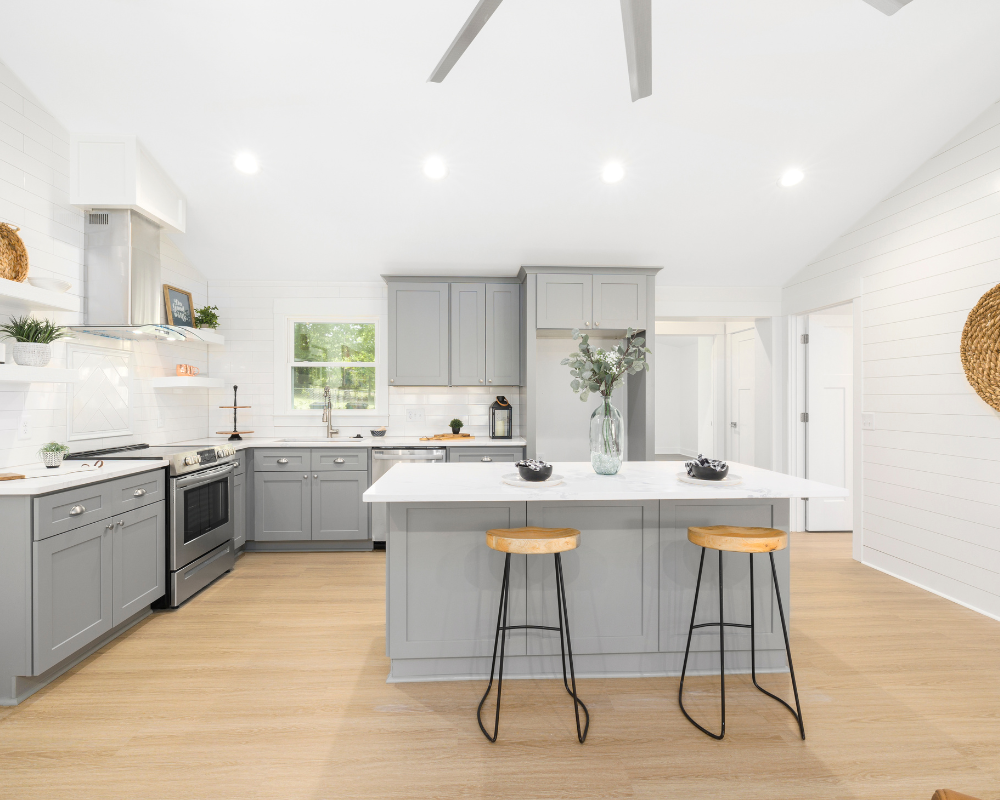
Color plays a crucial role in Feng Shui kitchen design. Opting for calming and warm tones in your decoration whether through painted kitchen walls, cabinetry, or decorative accents can transform it into a place of balance and rejuvenation. Earthy tones such as beige, light greens, pale grey and soft yellows can create a nurturing environment.
Feng Shui experts suggest avoiding overly bold or harsh color scheme, as this may disrupt the energy balance.
Mindful Storage
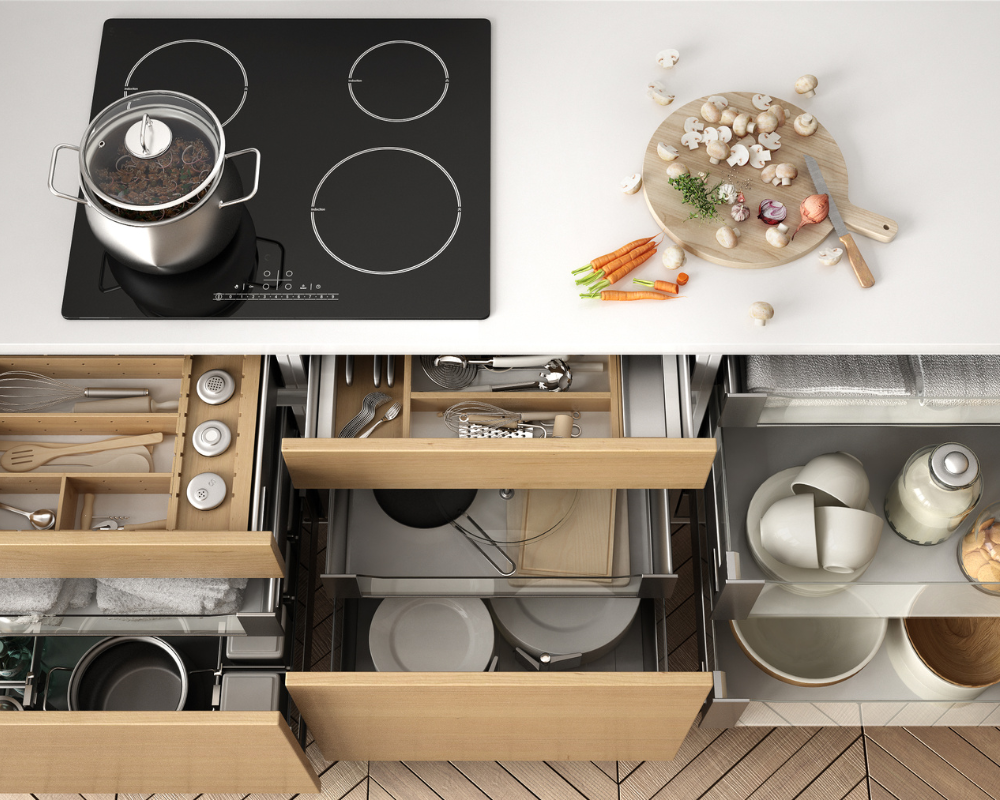
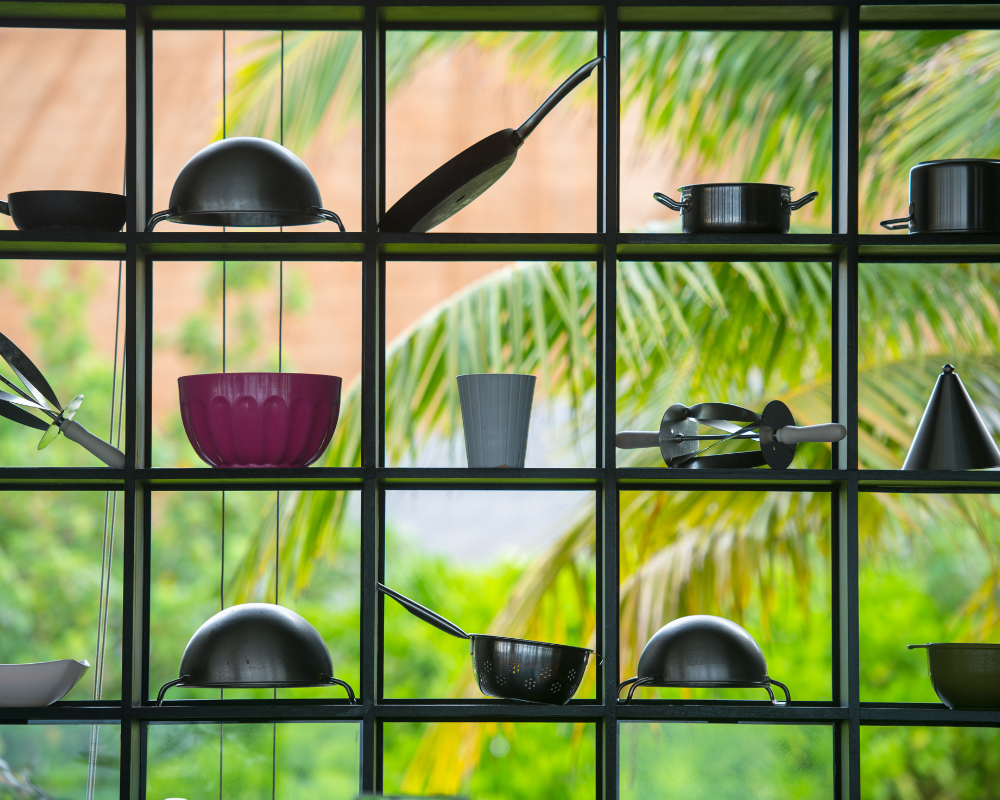
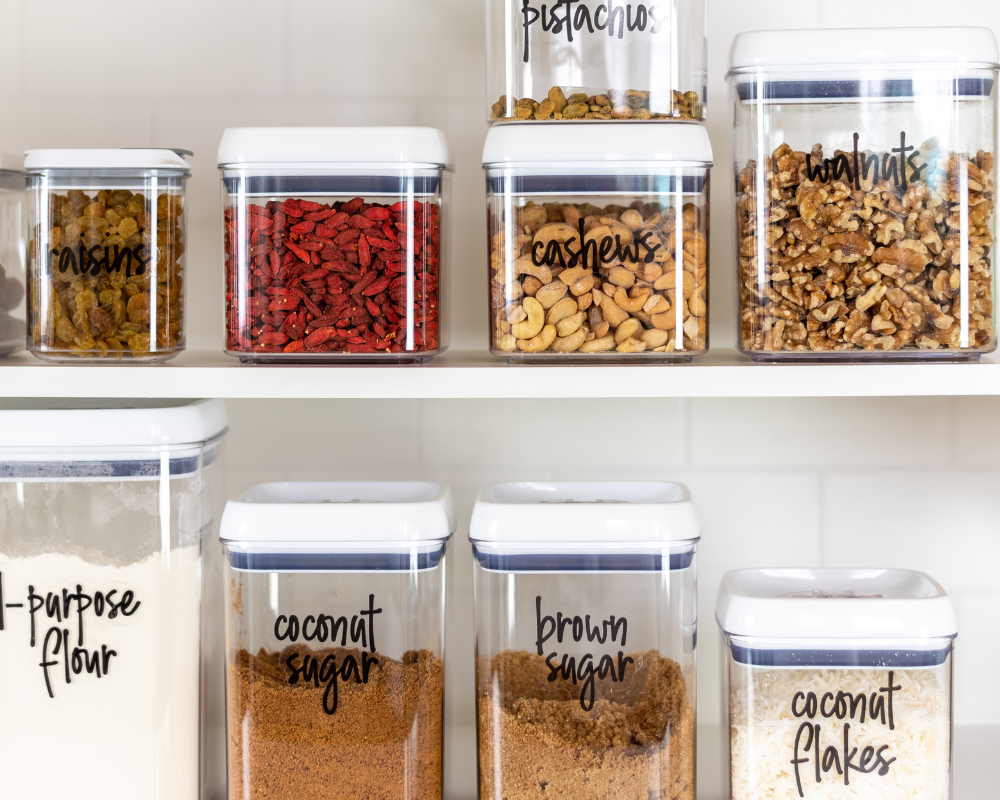
Mindful storage is not just about tidiness, but also about creating harmony and balance in your living space. The concept of Feng Shui emphasizes that kitchen cabinets should be organized in a way that promotes positive energy flow and creates a sense of peacefulness.
It is important to consider not just what you’re storing, but how you’re storing it. Utilizing transparent containers or labels can help maintain order while allowing you to easily identify where things are kept. Grouping similar items and storing them in an orderly fashion, not only makes cooking more efficient but also promotes a sense of order in the kitchen. Arranging items based on the frequency of use can streamline daily tasks and kitchen routines.
By approaching storage with mindfulness and intention, the kitchen becomes more than just a place for cooking – it becomes a place of relaxation, the heart of the home.
Introduce Living Elements
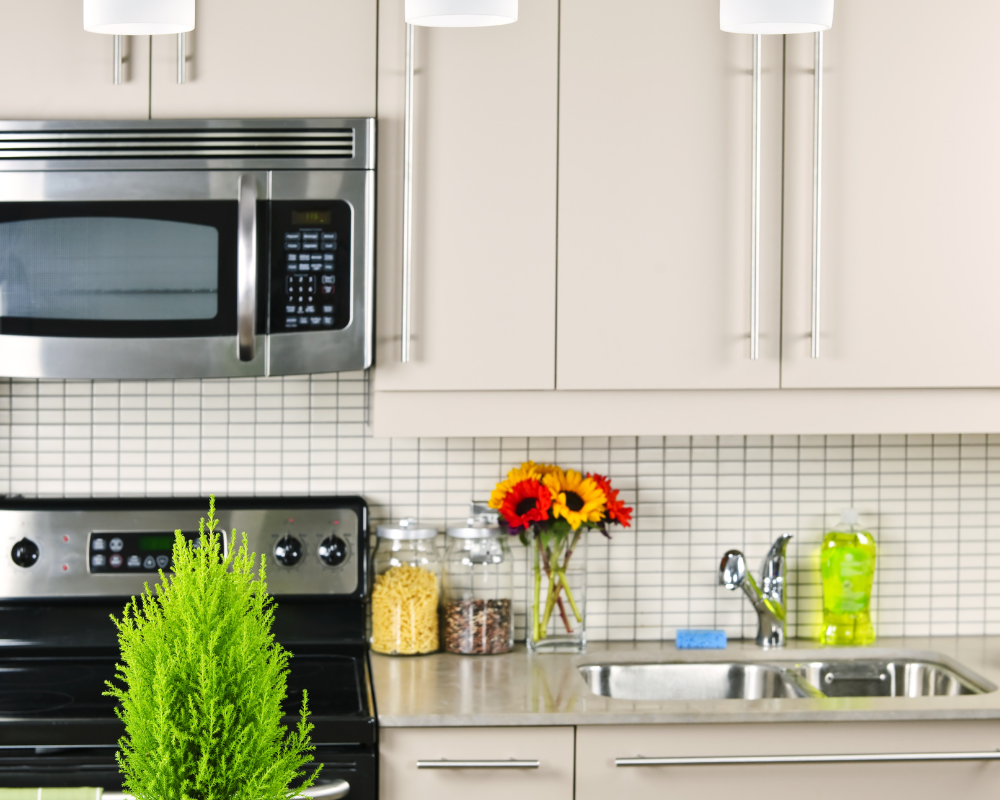
Incorporating natural elements such as plants, water features, and natural materials into our living spaces can significantly enhance the flow of good feng shui positive energy. In the kitchen specifically, for instance, introducing potted herbs or aromatic plants infuses the space with fresh scents and vibrant energy.
Furthermore, placing water features such as a small indoor fountain or an aquarium in a commanding position can bring about a sense of calm and abundance within the kitchen. These elements not only serve as decorative focal points but also contribute to improving the overall feel of the area creating better energetic flow.
Conclusion
Implementing simple changes and additionally, paying attention to the placement of kitchen appliances, and utilizing colors can enhance the overall atmosphere of the dining area. Remember that a well-designed kitchen according to Feng Shui tips can have a positive impact on your good health, relationships, and overall well-being. Happy cooking!


